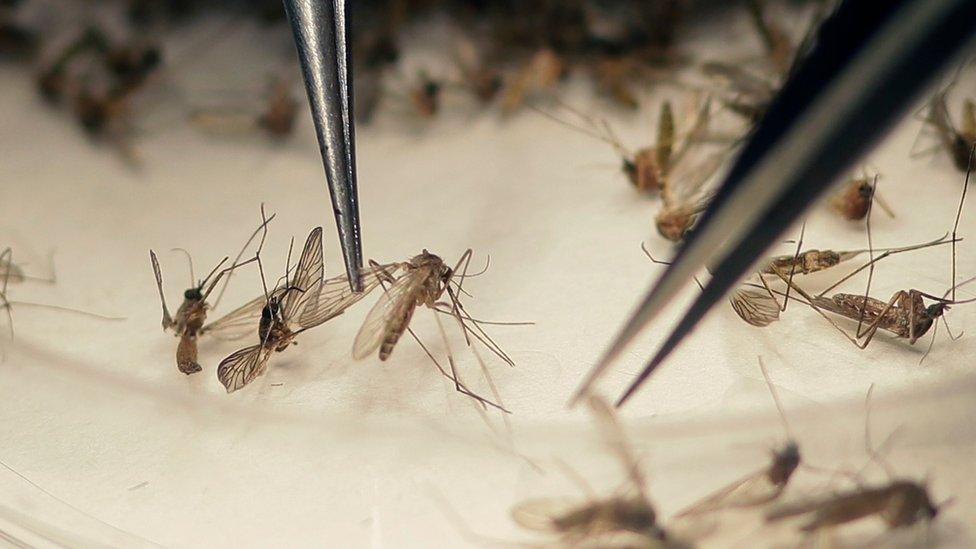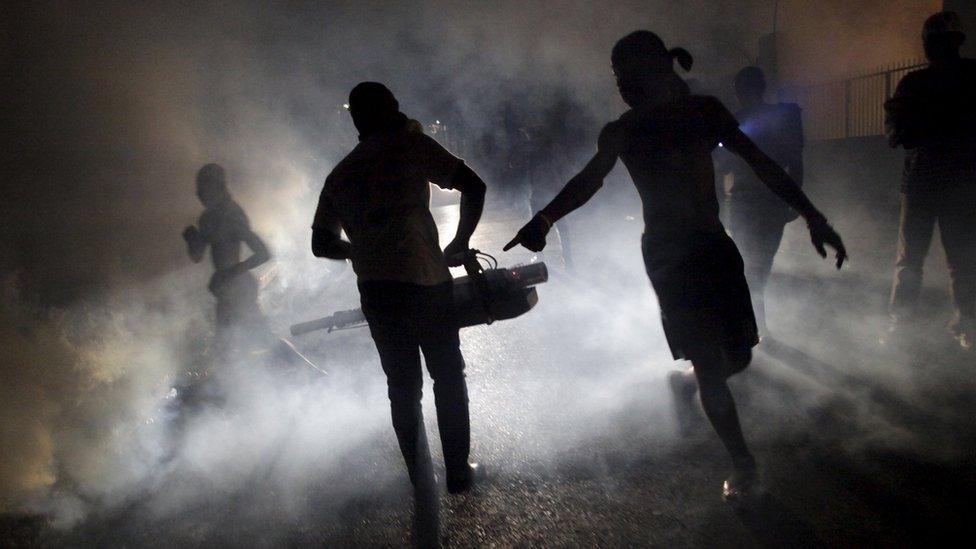Zika virus: WHO backs GM mosquito trials
- Published

Trials using modified mosquitoes have been taking place in the Cayman Islands
The World Health Organization (WHO) has backed trials of genetically modified (GM) mosquitoes that could be used in the fight against the Zika virus.
The WHO also said sterile irradiated male mosquitoes could also be released to mate with wild females.
However, environmentalists have warned over the possible consequences of wiping out an entire species.
Zika has been linked to microcephaly in babies, who are born with damaged brains and abnormally small heads.
In a statement, the WHO said it was encouraging affected countries "to boost the use of both old and new approaches to mosquito control as the most immediate line of defence".
Would it be wrong to eradicate mosquitoes?
The mothers fearing for their babies
Brazil's race to find a vaccine
Read more about the Zika virus
Initial trials using genetically modified mosquitoes developed by Oxitec, the British subsidiary of Intrexon, have been taking place in the Cayman Islands and Brazil.
The mosquitoes are altered so that their offspring will die before reaching adulthood and being able to reproduce.
Another technique under consideration involves releasing male mosquitoes that have been sterilised by low doses of radiation.
It has already been used by the International Atomic Energy Agency (IAEA) to control insects that damage crops.

The WHO has recommended using newer techniques as well as fumigation to fight Zika
A third option uses Wolbachia bacteria, which do not infect humans but prevent the eggs of infected female mosquitoes from hatching.
Mosquitoes carrying Wolbachia have already been released to reduce dengue fever and the WHO said large-scale trials would be carried out.
The WHO has declared Zika a global emergency, although definitive proof of a link to birth defects has not yet been established.
Scientists in Brazil say they have found more evidence of a link.
Brazil has about 460 confirmed cases of microcephaly and is investigating about 3,850 suspected cases.
The virus has spread throughout Latin-America, but Brazil has been hardest hit.


More on the Zika crisis:
Microcephaly: Why it is not the end of the world
What you need to know: Key questions answered about the virus and its spread
Travel advice: Countries affected and what you should do
The mosquito behind spread of virus: What we know about the insect
Abortion dilemma Laws and practices in Catholic Latin America